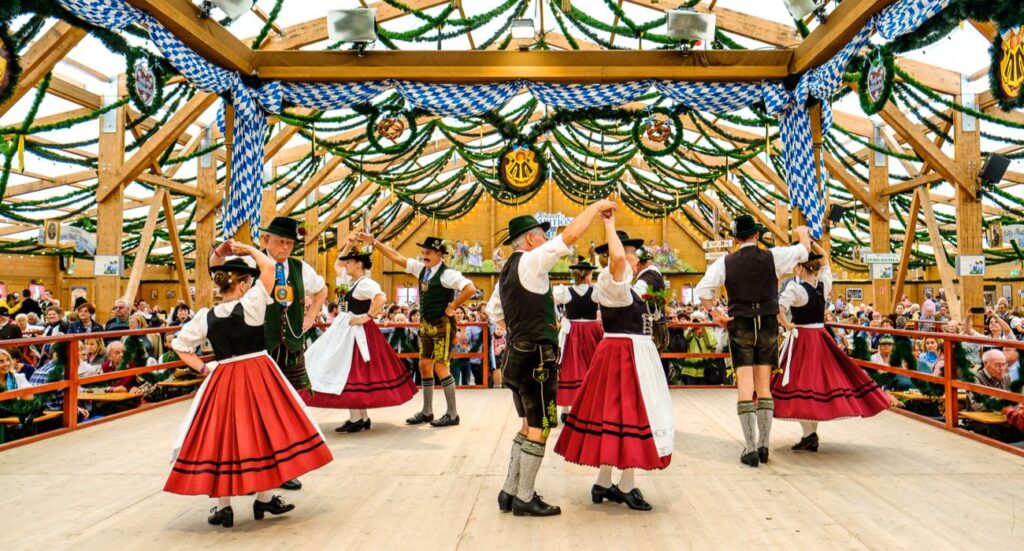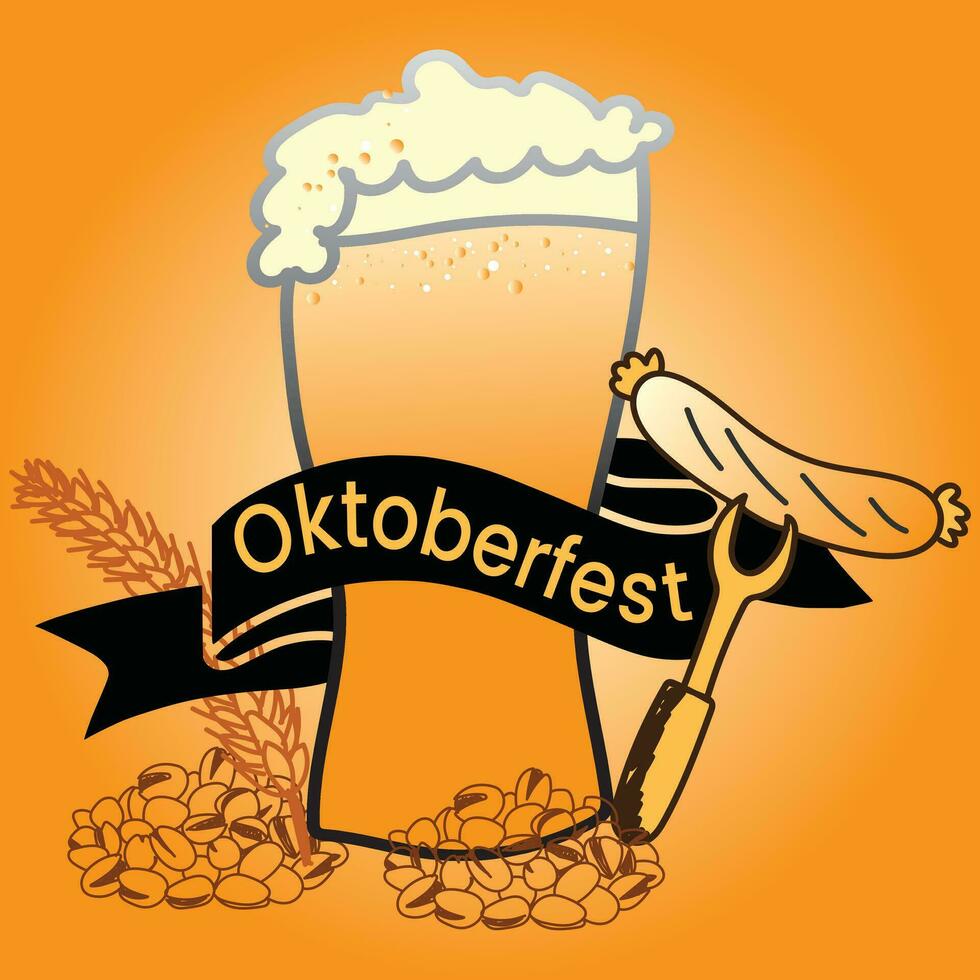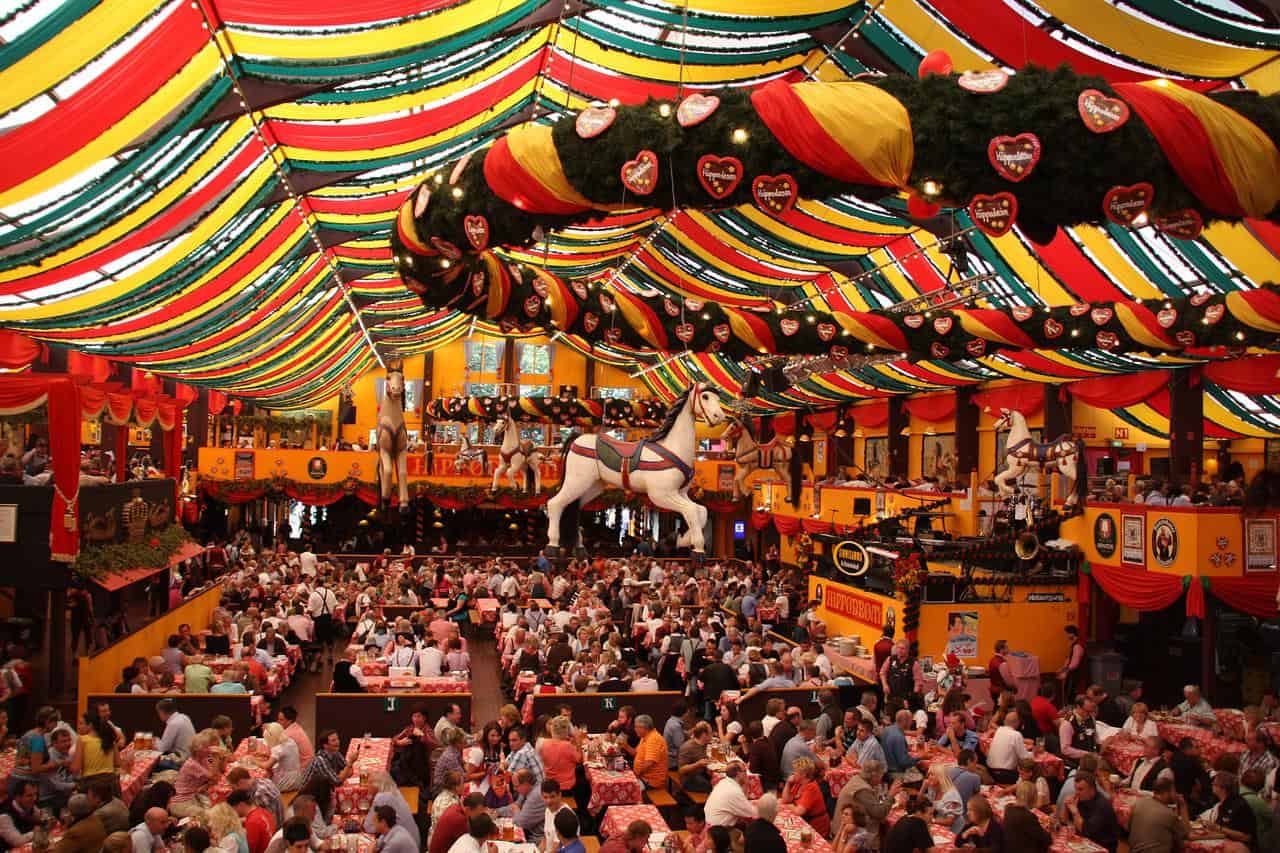Oktoberfest is the world’s largest Volksfest (people’s festival), held annually in Munich, Germany.
It combines:
- Beer Festival
- Folk Fair
- Cultural Celebration
Millions of people from around the world visit Munich every year to enjoy traditional German beer, Bavarian food, folk music, parades, and carnival rides.
Historical Background of Oktoberfest
The Origin — Royal Wedding of 1810
- Date: October 12, 1810
- Occasion: Marriage of Crown Prince Ludwig (later King Ludwig I) and Princess Therese of Saxe-Hildburghausen.
- Citizens of Munich were invited to celebrate the royal wedding with a public festival and horse race held on the fields in front of the city gates.
- These fields were later named “Theresienwiese” (Therese’s Meadow) — still the official festival grounds today.
The Horse Races & Annual Tradition
- The first festival ended with horse races, a popular sport among nobility.
- Due to its success, the event was repeated in 1811, adding agricultural shows to promote Bavarian farming.
- Over time, the festival grew into an annual event, incorporating more entertainment, beer tents, and food stalls.
The Beer Tents and Breweries
- By the late 19th century, Munich’s local breweries began setting up large beer tents and halls, making beer the centerpiece of the festival.
- Beer served at Oktoberfest must be brewed within Munich city limits by one of six approved Munich breweries, following the Reinheitsgebot (German Beer Purity Law of 1516).
Modern Expansion and Global Fame
- Today, Oktoberfest runs for 16–18 days, usually starting in mid-September and ending on the first Sunday of October.
- It attracts 6–7 million visitors annually, making it the largest beer festival in the world.

Key Traditions and Customs of Oktoberfest
The Beer
- Served in 1-liter glass mugs called “Maß”.
- Only Märzen-style Oktoberfestbier is served — a traditional amber lager brewed specially for the event.
- Famous breweries include:
- Paulaner
- Spaten
- Hofbräu
- Augustiner
- Löwenbräu
- Hacker-Pschorr
The Beer Tents (Festzelte)
- There are 14 large tents and 20 smaller tents.
- Each tent has its unique character — from traditional Bavarian halls to party-themed tents.
- Examples:
- Schottenhamel: The oldest tent, where the festival is officially opened.
- Hofbräu-Festzelt: Popular with international visitors.
- Augustiner-Festhalle: Known for its family-friendly atmosphere.
Traditional Bavarian Food
- Roast chicken (Hendl)
- Pork knuckle (Schweinshaxe)
- Bavarian pretzels (Brezn)
- White sausages (Weißwurst)
- Sauerkraut and dumplings
Music and Dance
- Traditional Bavarian brass bands play folk songs, polkas, and classic beer chants.
- Guests join in singing, dancing on benches, and raising mugs with “Ein Prosit” (a toast of good cheer).
Traditional Clothing (Tracht)
- Men: Lederhosen (leather shorts) with suspenders, checked shirts, and traditional hats.
- Women: Dirndl (traditional Bavarian dress) with apron and blouse.
- Wearing traditional clothing is part of the experience!
Important Traditions During Oktoberfest
Opening Ceremony (O’zapft is!)
- The mayor of Munich officially opens the festival by tapping the first beer barrel in the Schottenhamel tent.
- Shouts “O’zapft is!” (“It’s tapped!”) mark the beginning.
- The first beer is served to the Minister-President of Bavaria.
Parades and Events
- The Grand Entry of the Oktoberfest Landlords and Breweries
- Traditional parade with horse-drawn beer wagons, brewers, and staff.
- Traditional Costume and Riflemen’s Parade
- Features over 8,000 participants from across Europe showcasing traditional dress, music bands, and riflemen.
Amusement Rides and Attractions
- Includes:
- Ferris wheels
- Roller coasters
- Traditional carousels
- Shooting galleries
Family-friendly attractions make Oktoberfest a carnival experience.

The Beer and Cultural Rules
- No strong intoxication allowed inside tents.
- Beer only served while seated.
- Tents are often booked in advance.
- Cash is king — most stalls and tents accept cash only.
- Respectful behavior is expected, despite the festive atmosphere.
Oktoberfest Outside of Germany
- Inspired versions of Oktoberfest are celebrated worldwide:
- Cincinnati (USA)
- Blumenau (Brazil)
- Kitchener-Waterloo (Canada)
- Hong Kong and Australia
But the Munich Oktoberfest remains the original and largest.
Oktoberfest Challenges and Modern Considerations
- Security Measures:
Stricter security in recent years to ensure crowd safety. - Environmental Concerns:
Efforts toward sustainable practices, including waste reduction and recycling. - Tourism and Commercialization:
Some locals feel Oktoberfest has become too commercial and tourist-driven.
Oktoberfest Dates
- September 20 – October 5
Oktoberfest is not just a beer festival — it is a celebration of Bavarian culture, hospitality, and tradition, deeply rooted in over 200 years of history.
From royal weddings and horse races to global fame and cultural pride, Oktoberfest remains a unique blend of fun, folklore, and festivity, welcoming millions to experience the heart of Bavarian life.
